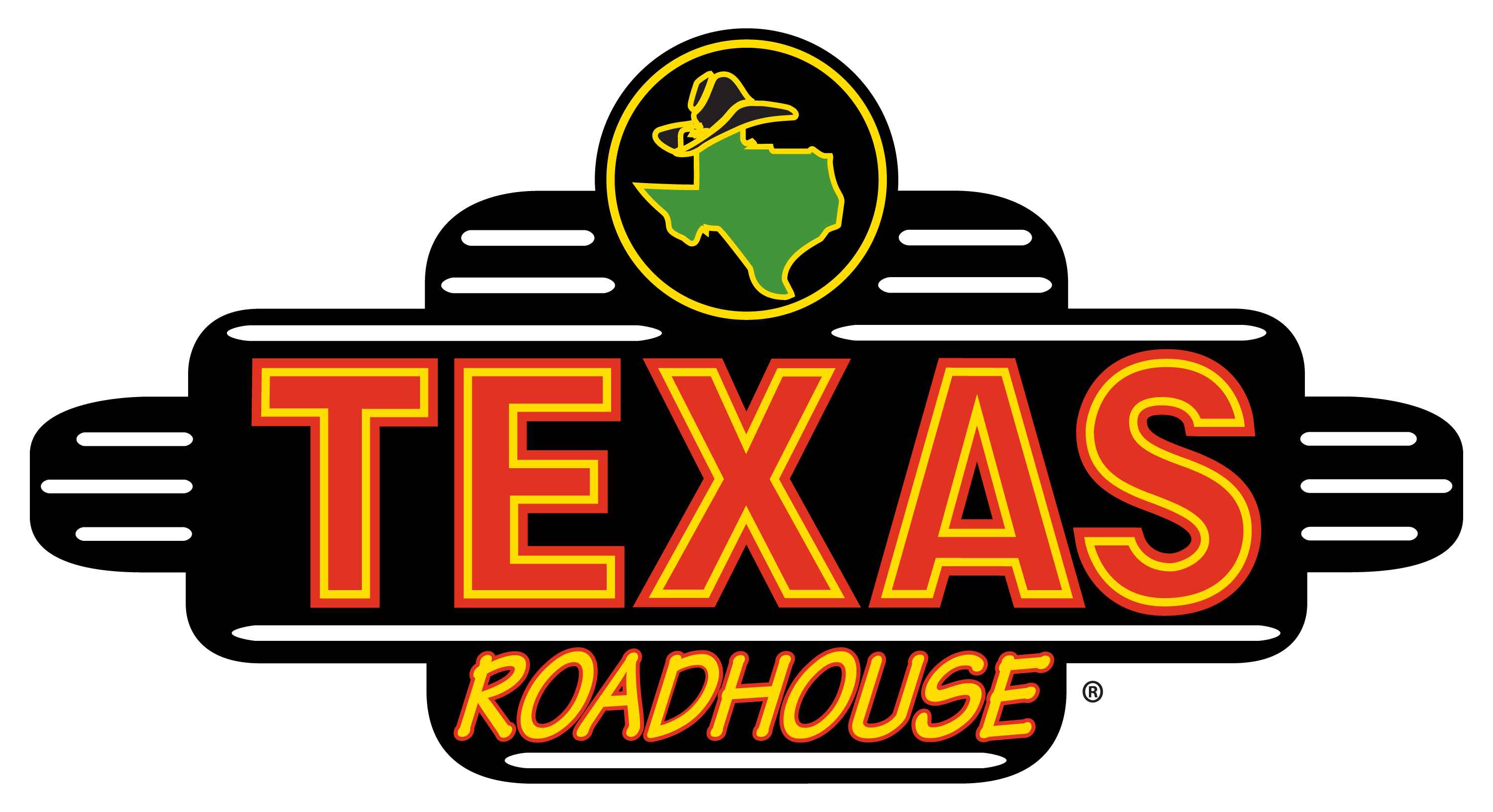The Bee Conservancy’s Master Beekeeping Program
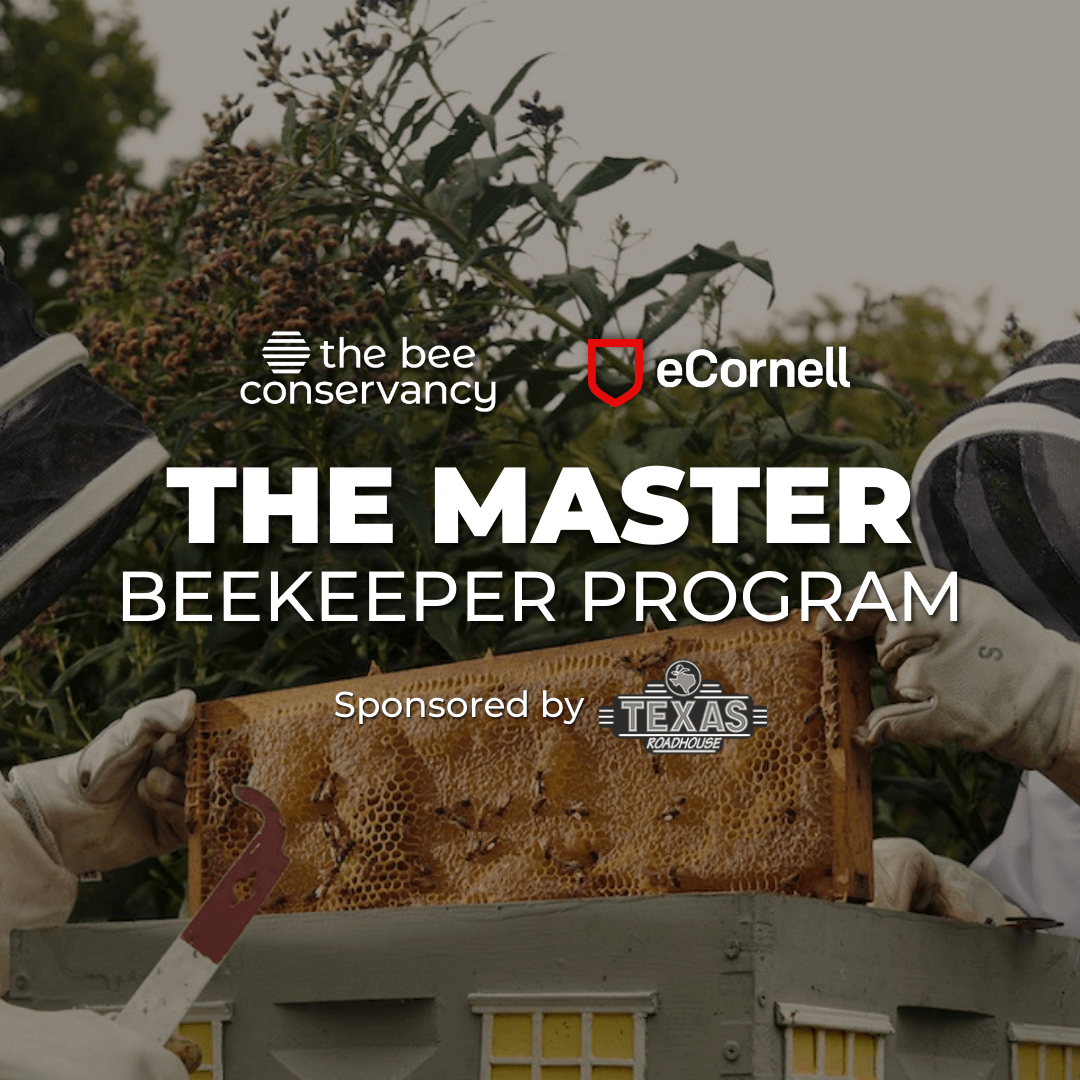
TBC is offering six (6) scholarships to eCornell’s Master Beekeeping Certificate program for the 2025–26 academic year. These scholarships will be awarded to mid-level beekeepers with a minimum of three (3) years of beekeeping experience whose work with bees advances environmental stewardship, community resilience, and/or food justice.
This scholarship was made possible through a donation from Texas Roadhouse.
Recipients of The Bee Conservancy’s scholarship will:
- Be enrolled in the course that begins in March 2025, at no cost to the recipient.
- Receive ongoing mentorship from The Bee Conservancy’s certified Master Beekeeper staff members.
A Cornell University Master Beekeeping Certificate from Cornell University’s College of Agriculture and Life Sciences, Department of Entomology will be awarded to individuals who complete the required coursework and receive a passing grade on the exam series.
Cornell’s Master Beekeeping Certificate Program:
- Starts in March of 2025 and lasts until August 2026.
- Consists of 4 online courses in Honey Bee Evolution, Biology, and Behavior; The Science and Art of Beekeeping; Managing Pests and Diseases; The Rewards and Contributions of Beekeeping
- Culminates in a written, oral, and field exam series.
Scholarship awardees are required to:
- Complete and receive a passing grade on all program coursework, including oral, written, and field exams.
- Provide one (1) educational experience for TBC’s community.
- Share their beekeeping story and course experience on TBC channels, and on the channels of scholarship partner Texas Roadhouse.
- Attend mentorship and community building meetings with their cohort and TBC staff throughout the entirety of the course.
To be eligible for The Bee Conservancy’s Master Beekeeper Program you must:
- Be at least 18 years of age.
- Live in the United States of America.
- Have at least 3 years of hands-on beekeeping experience.
- Have access to a honey bee hive in your community.
- Commit to completing and passing all course and field work, exams, and other activities required by Cornell to earn your Master Beekeeping Certificate.
- Be able to cover any expenses outside of the $300 travel stipend to take final exams in Ithaca, NY, if unable to complete the exams digitally.
- Be able to meet all of the technical requirements listed on this page to participate in an eCornell program.
- Not be an affiliate, employee, or immediate family member of the selection committee members.
Meet Our Awardees for the 2023 Beekeeping Season

Eric Fuchs-Stengel
NCAT and Nine Lives Farm, NJ
“I’d like to refresh my knowledge with the core concepts and connect with the eCornell program. I feel it could be a great partnership in my work. Most importantly, this will continue to grow me as a beekeeper and help me become a better advocate for our Honeybees and native pollinators.”
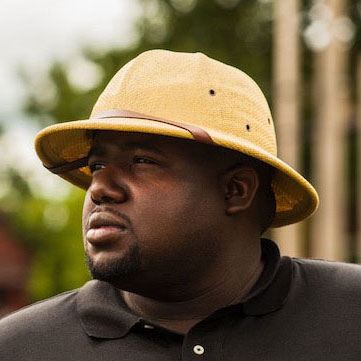
Timothy Jackson
“I’ve used urban beekeeping to create a social, environmental, and financial impact within underserved communities and educate hundreds of inner city youth. I’m looking to obtain a higher level of achievement that will display my true passion for honeybees and inspire the next generation of leaders on sustainability.”
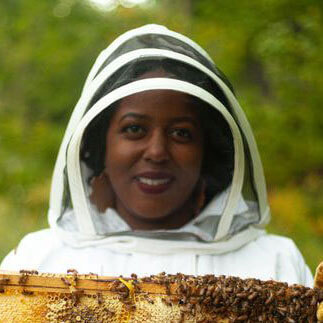
Nicole Lindsey
“Pollution, blight, and abandonment are linked to higher rates of chronic mental and physical health conditions, especially among people of color. Detroit Hives is addressing disparities within marginalized communities by using pollinator habitats to reactivate vacant properties and facilitate food security, economic mobility, and environmental justice.”
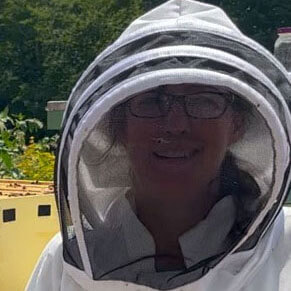
Amy Musante
Musante Farm, MA
“This training will deepen my knowledge and expertise as a beekeeper, enabling me to develop my offerings and community outreach, hone my beekeeping and teaching skills, and strengthen my ability to care for the land and its inhabitants that are so essential to our food security.”
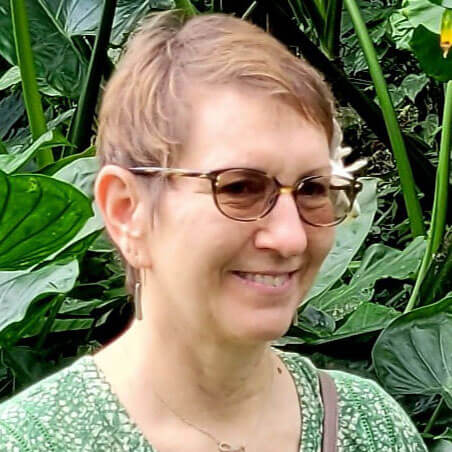
Caty Poole
Massaro Community Farm, CT
“I believe this is the next step in my evolution as program and education leader at our community organic farm. I have the chance to broaden my knowledge on managing bees and bee products and share that knowledge with the growing number of participants coming to the farm each year.”

Patrick Pynes
The Center for Organic Beekeeping, AZ
“Without that continued learning, a beekeeper becomes stale and complacent. That’s a recipe for decline because things are rapidly changing. I think there’s a deeper, wider level of learning from the bees that I’m ready to begin. Participating in this certificate program will help that deeper learning to happen.”

Frank Schellace
“I’m deeply committed to imparting as much knowledge as possible for those benefiting from our outreach initiatives. When I see program outcomes that promise the ability to navigate controversial topics, speak with credibility, and act as an educational resource, I’m certain this is the next step in my pursuit of improvement.”
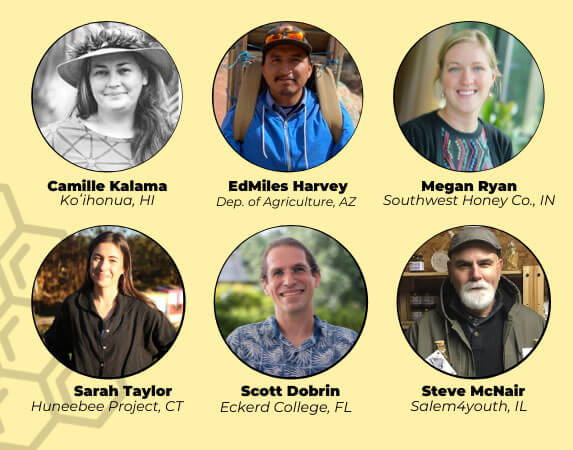
Meet Our 2022 Awardees
We believe that continuously building beekeeping skills helps to ensure the health of colonies and local ecosystems.
Our 2022 awardees were selected for the amazing work they do to leverage beekeeping to advance environmental stewardship, community resilience, and food justice.
Their projects include honey bee research, training at-risk youth, and bolstering native lands.
Better Beekeeping Through In-Depth Education
While quality beekeeping training can be costly and challenging to acquire, it is crucial for the health of honey bee hives and the local ecosystems they visit. Beekeepers have the power to mitigate disease, pests, starvation, and more when honey bees bees pollinate 80% of the world’s flowering plants — including one in three bites of food that we eat.
This program will provide essential continuing education for mid-level beekeepers, who in turn, can use their improved skills to improve hive health, build pathways for employment, and inspire new generations of bee stewards.
